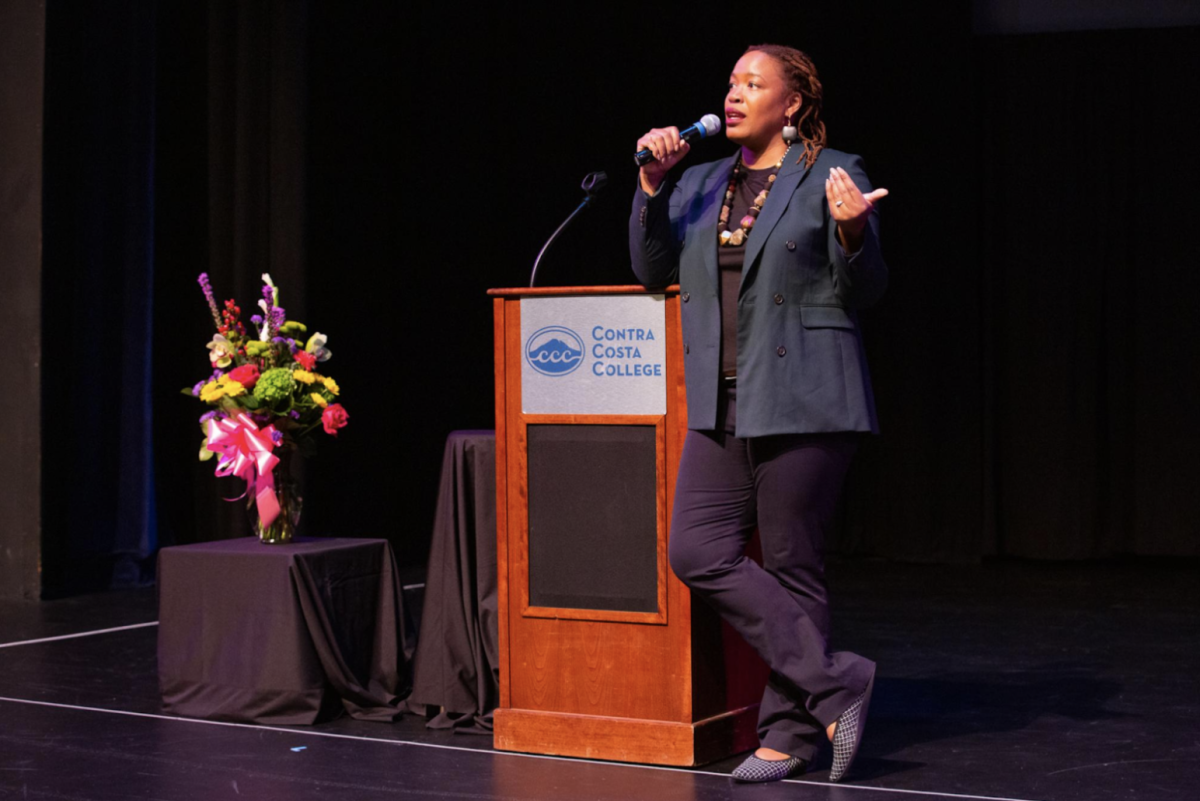Author Heather McGhee spoke on Feb. 15 at Contra Costa College where she discussed how the negative effects of racism harm not only people of color, but white people as well.
At the event, which was part of the Contra Costa Community College District’s 75th Anniversary speaker series, McGhee talked about her New York Times best-selling book, The Sum of Us: What Racism Costs Everyone and How We Can Prosper Together, which was published in 2021.
In the book, McGhee explores her idea of “drained-pool politics,” referring to public pools in Montgomery, Ala., which were drained by the government in 1959 in response to efforts to desegregate the pools so that they could be used by African-Americans as well as whites.
In her talk, McGhee stressed that the pools reflected a deeper meaning about racial politics because they exemplified how the U.S. government reinforces inequitable access to public goods.
“In so many ways, these pools were kind of a glaring reflection of the deeper ethos,” said McGhee, which was “a worldview that came out of the lessons of the first Gilded Age of inequality, which we’ve now surpassed, and came out of the crucible of the Great Depression.”
According to McGhee, this ethos “said the government had a right and in fact a responsibility to ensure a decent standard of living for her people,” and basic standards such as subsidized mortgages were ultimately “economically more significant than public swimming pools.”
Prior to becoming a best-selling author, McGhee graduated from Yale University and UC Berkeley School of Law. She later adapted her award-winning book into a podcast that was carried by the production company Higher Ground, which is owned by Barack and Michelle Obama.
In the audio extension of her book, McGhee met up with individuals who shared stories of solidarity in small rural towns across the United States. “So I began to collect these stories, and they’re stories of people really being able to win cleaner air, higher wages, better funded schools, all through cross-racial organizing,” she said.
The most persistent obstruction that cross-racial solidarity faces is what McGhee discussed as zero-sum thinking, the notion that one racial group’s gain is another one’s loss. Because it often leads to racial division, McGhee emphasized the importance of teaching against zero-sum thinking in high schools and college.
McGhee argued that many white Americans would rather reduce government benefits for everyone rather than expand them to African Americans.
“I really see [zero-sum thinking] as being incredibly important,” particularly in the immigration debate, said Dr. Peter Krey, a Lutheran pastor and retired Diablo Valley College professor who attended the event. “If we integrated [immigrants] into our society, we would be more prosperous.”
McGhee said different racial groups need to design policies and develop an inclusive mindset that benefits everyone together, instead of remaining divided.
“The solution is to come together,” she said, “and that is a story of solidarity.”





































































